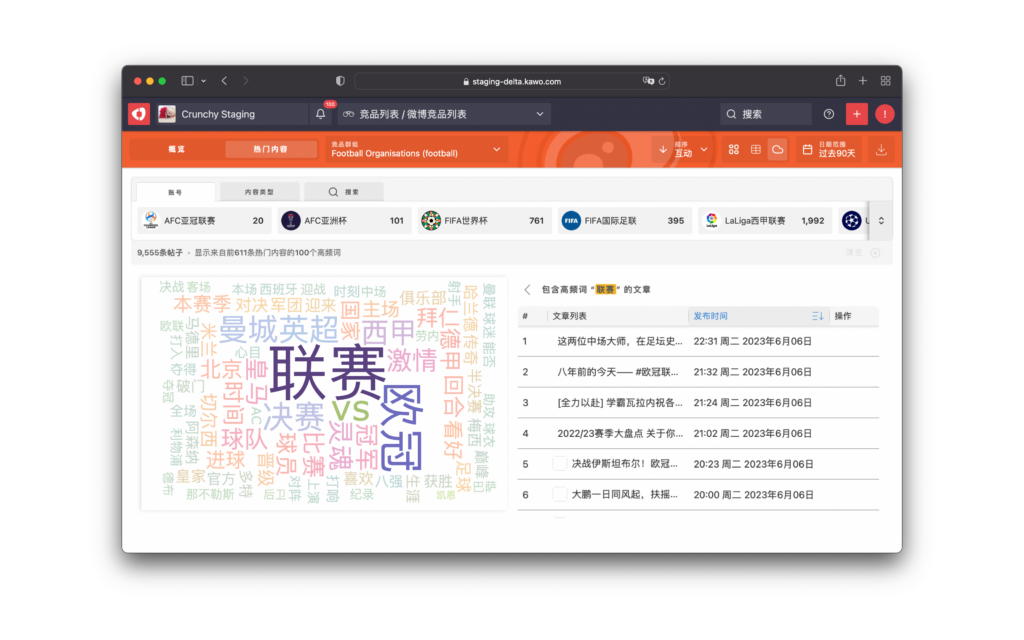


Visualizing data in your reports can assist you in understanding and identifying trends. Here are some ways KAWO visualizes data to help you understand what’s actually working:
(1) Line
(2) Column
(3) Pie
(4) Table
(5) Number
(6) Top Content
(7) Word Cloud (new)
(1) Line
The growth of your followers is displayed as a line for the selected time period, with granularity options of Daily, Weekly, and Monthly. It’s a great way to analyze data over time.
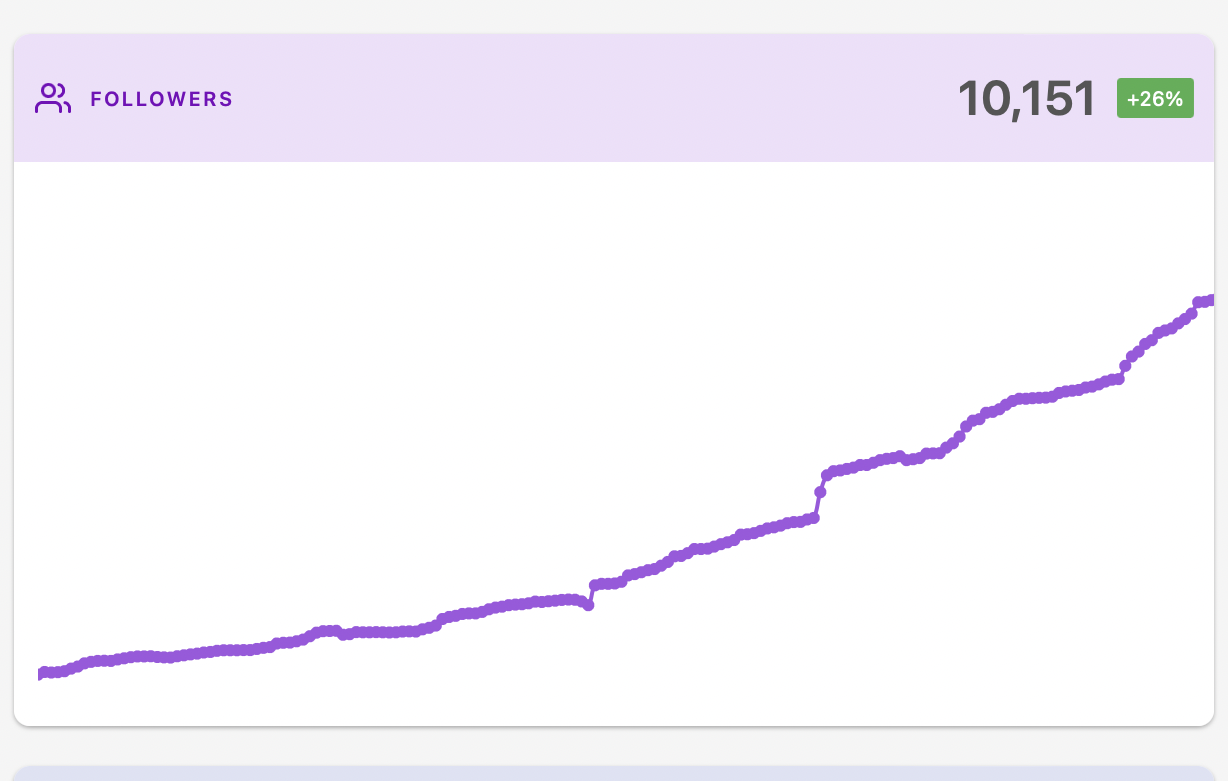
Tip: Select a point on the line to take a closer look into your data and analyze the content that contributes to growth in followers. Use Column (see below) to view Follower Gain/Loss metrics.
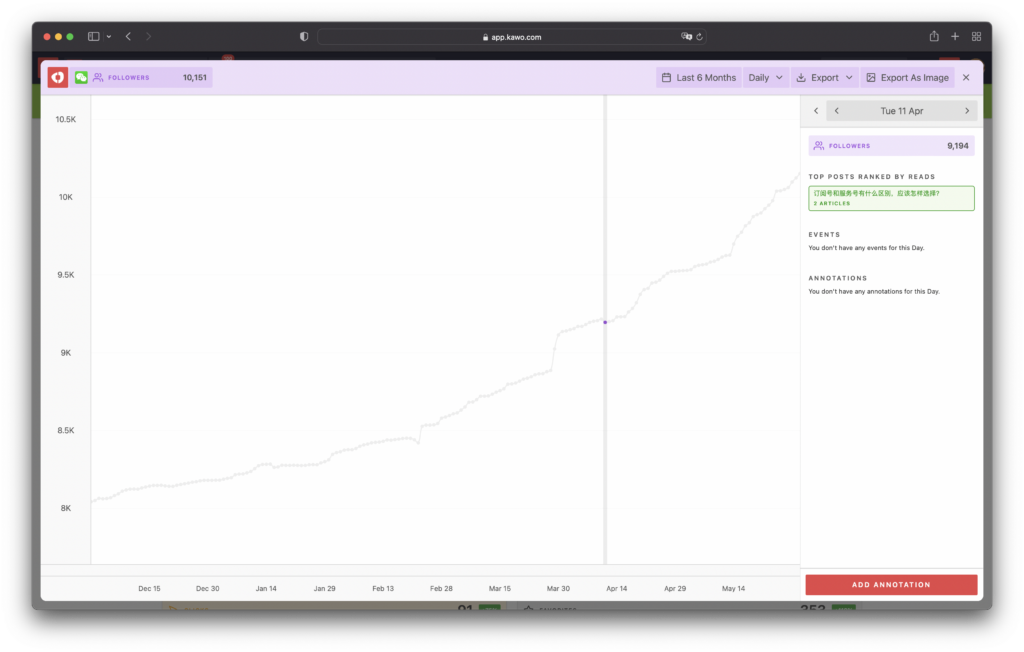
(2) Column
Your Follower Gain/Loss metrics are displayed for the selected time period. Each vertical column represents a day, a week or a month.
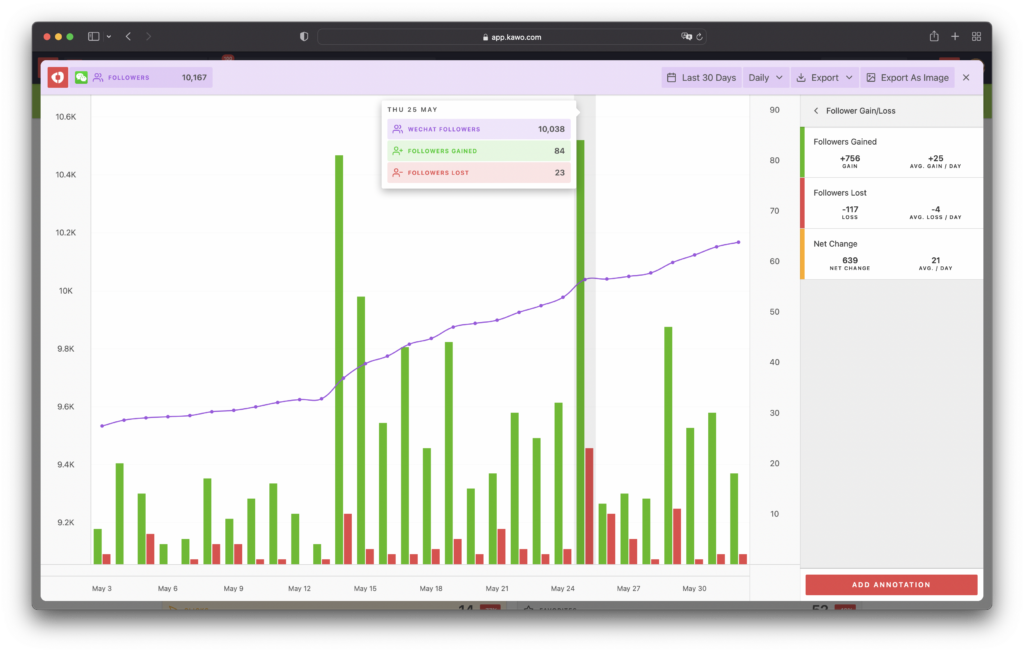
Tip: A number of account-wide metrics are available on KAWO, such as Reads, Shares, Clicks, Favorites, and many others. The visualized data can be exported as images and spreadsheets.
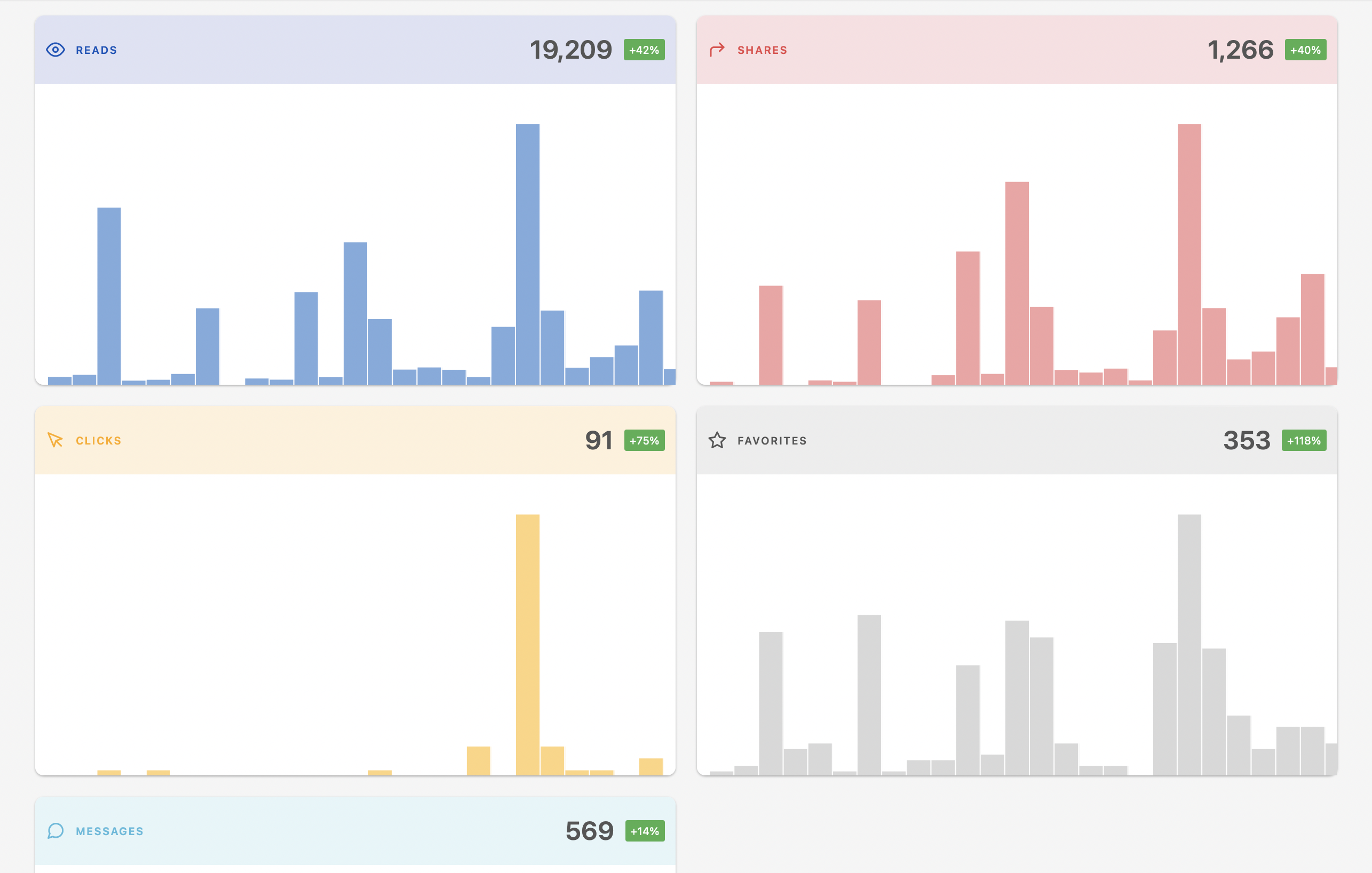
(3) Pie
The Pie charts in KAWO Reporting display a variety of data sources such as WHERE YOUR CONTENT IS GETTING SHARED, HOW PEOPLE FOUND YOUR CONTENT, and WHAT PEOPLE FOLLOWED YOUR ACCOUNT.
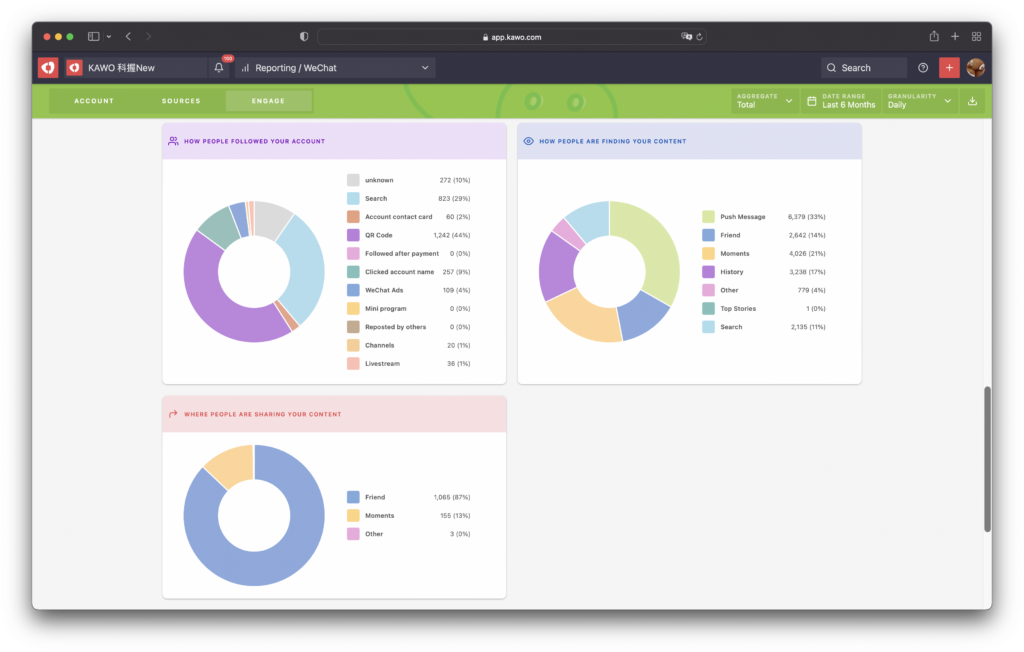
(4) Table
The table in Data Center displays post stats of your WeChat, Weibo, Kuaishou, and Douyin.
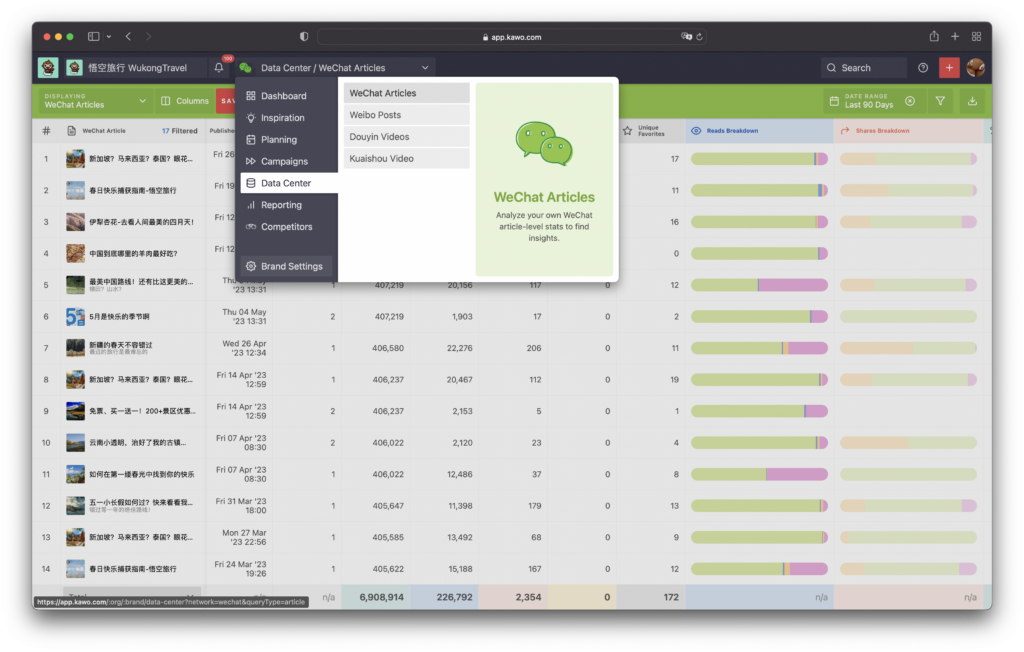
Tip: Select the metrics that you need to customize the table. You can save or reset the table.
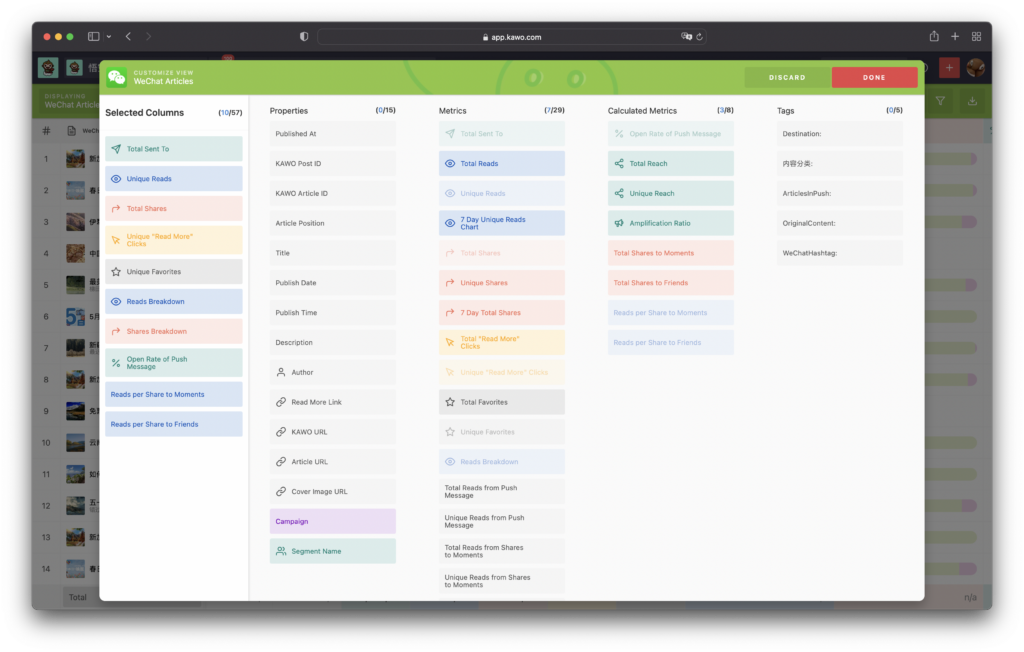
The Top Content (see below) in Competitors displays your competitors’ top content in Table and Grid.
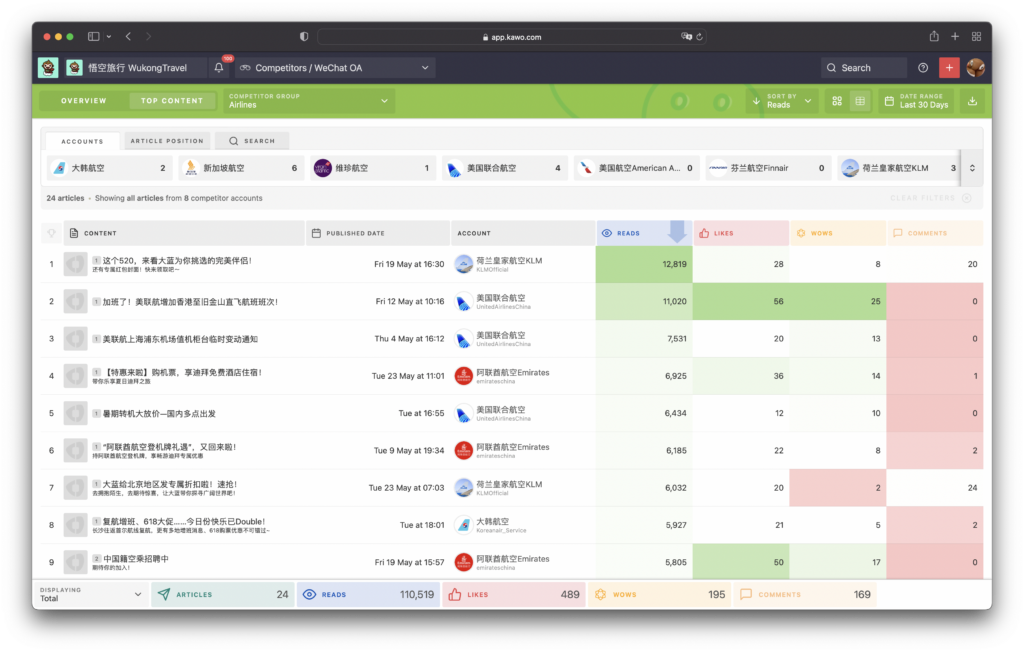
(5) Number
KAWO Dashboard displays each metric with the aggregated numeric value of your last 30-day stats.
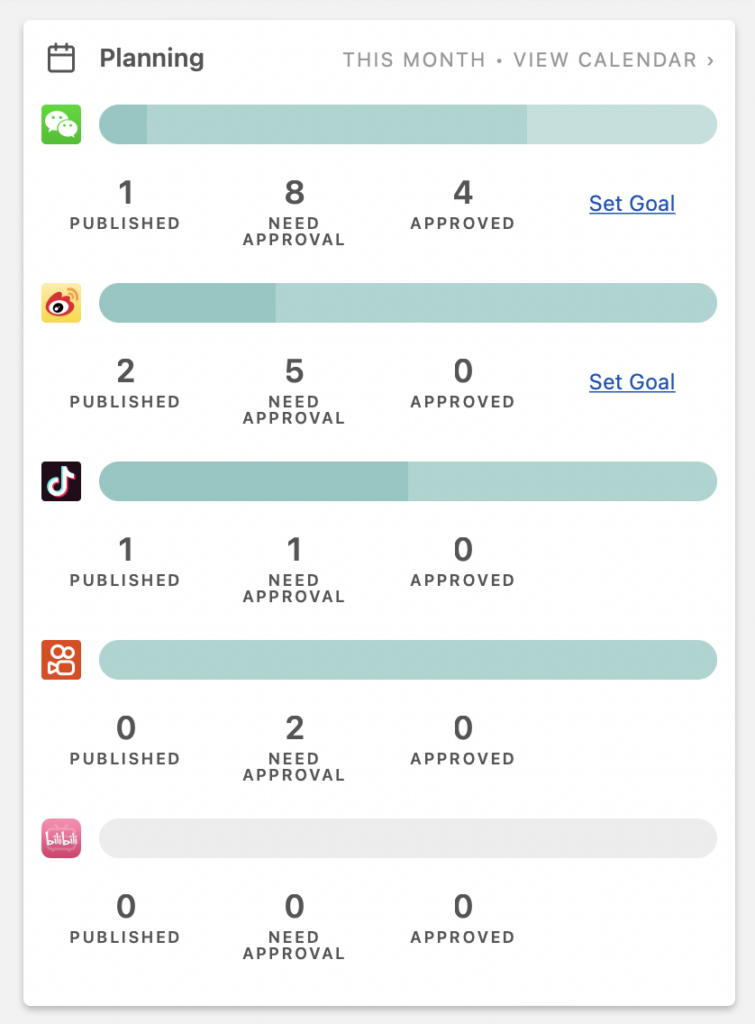
(6) Top Content
In KAWO’s Competitors, brands can easily search for their competitors’ top content or any content with specific keywords in order to analyze their competitor’s efforts on seven mainstream social media platforms in China.
Users can toggle between Table and Grid for information displayed in the Top Content; the data can be exported as spreadsheets.
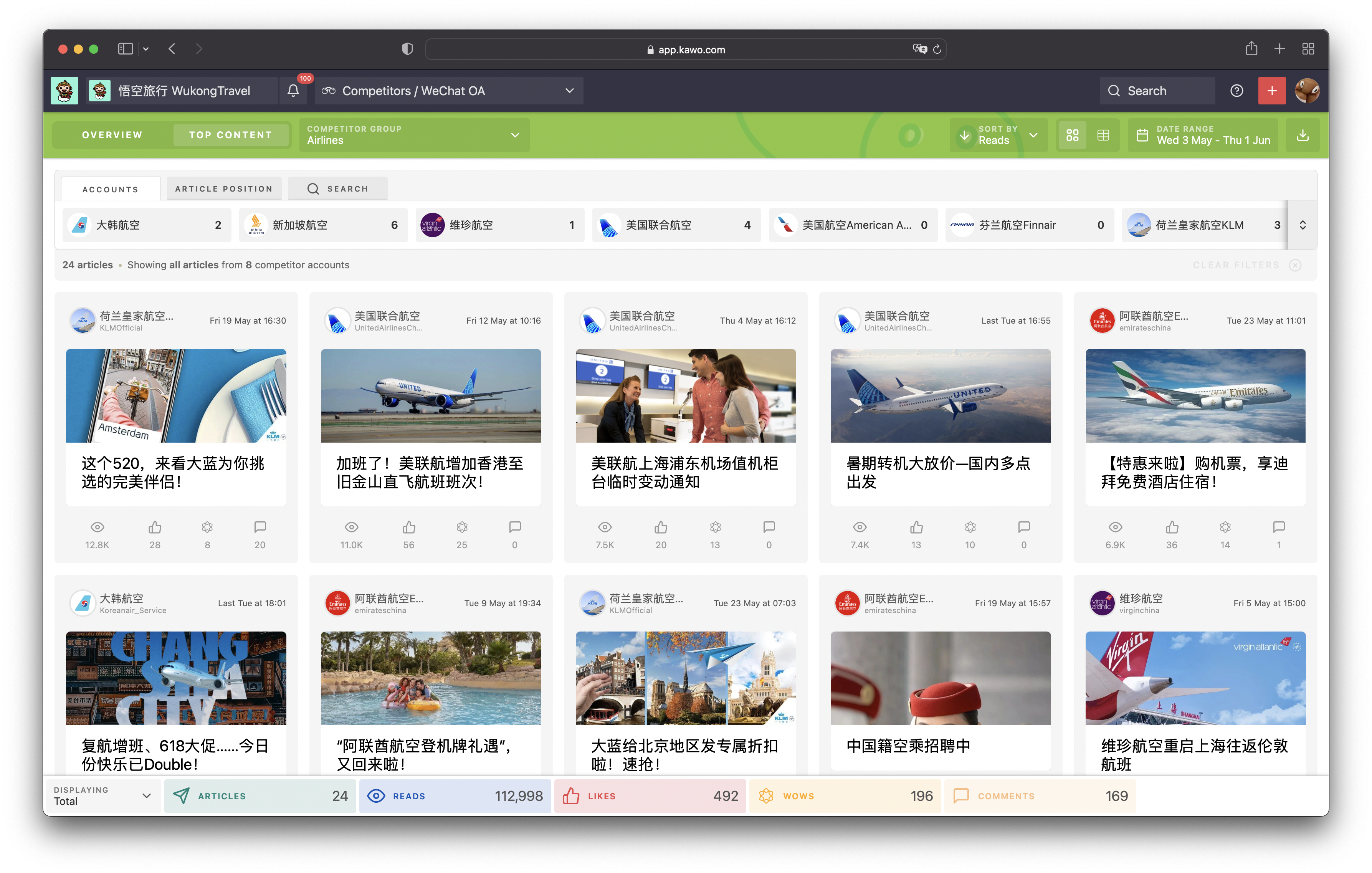
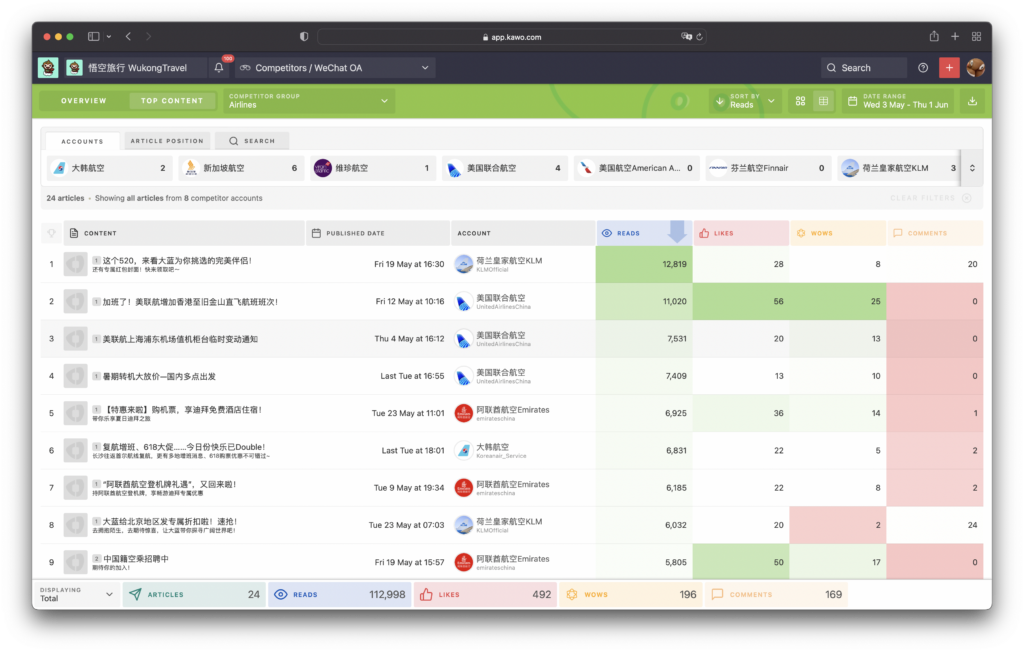
(7) Word Cloud
The Word Cloud feature in KAWO’s Competitors offers a visual representation of the most common keywords used in your competitors’ top posts. This helps you to quickly understand the main themes or topics of your competitors’ posts.
